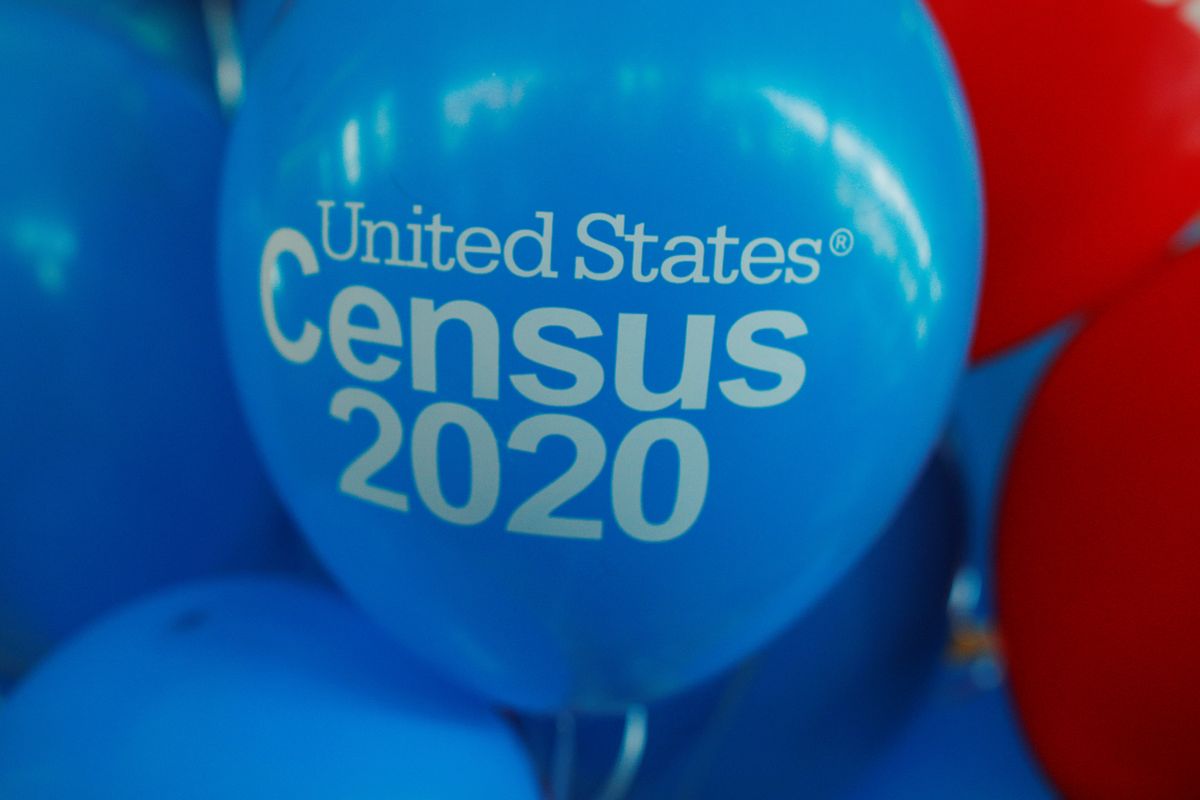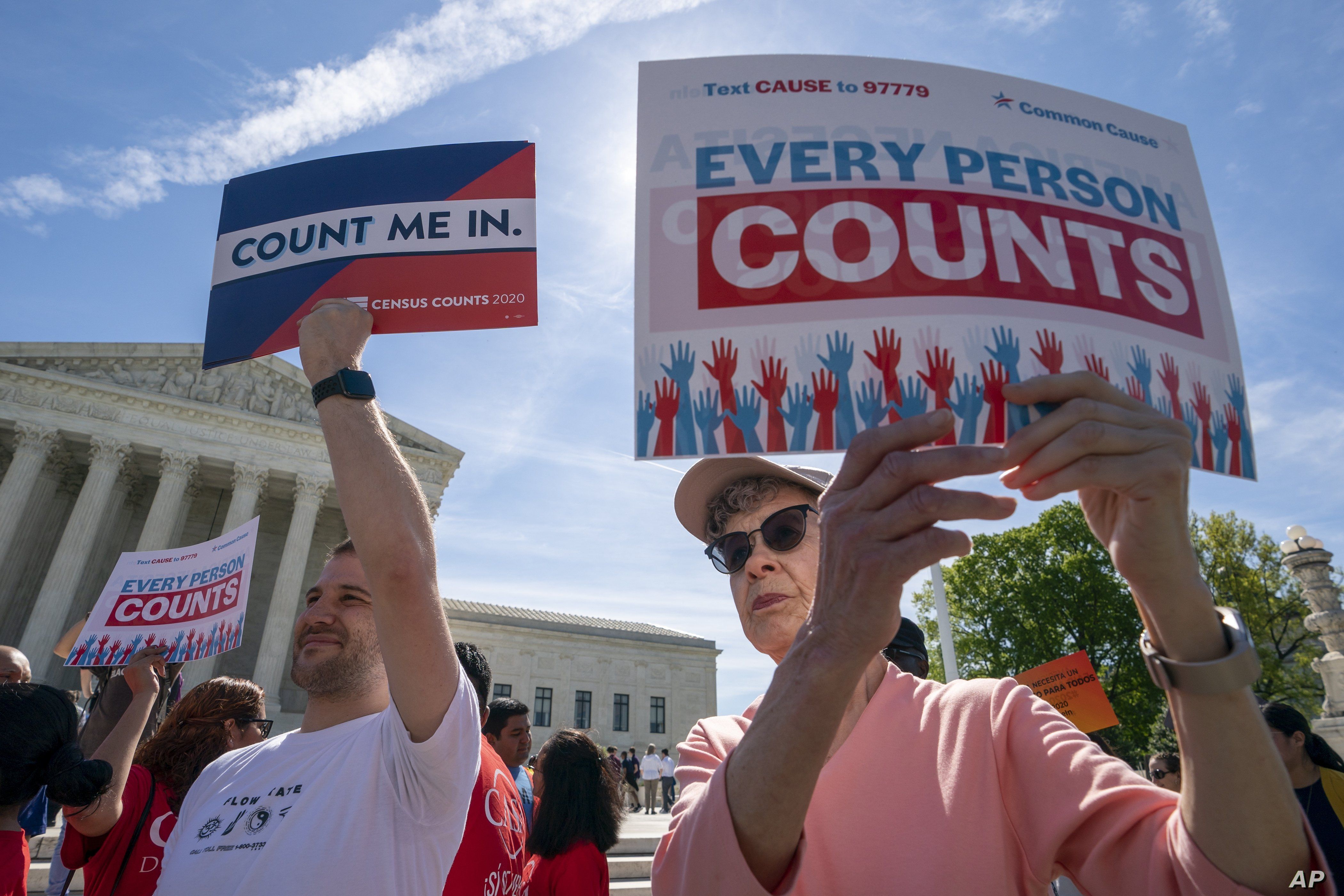
Justice Department Still Working to Add Citizenship Question to Census
Justice Department attorneys confirmed Friday that they were still working to add a citizenship question to the census, although they did not provide a new rationale for doing so, a requirement the Supreme Court set last week.
In a Maryland court filing, the Justice attorneys said they had been "instructed to examine whether there is a path forward, consistent with the Supreme Court's decision, that would allow for the inclusion of the citizenship question on the census."
Critics have said adding such a question could suppress the count of minorities.
Before the filing, President Donald Trump said he was considering "four or five” ways to add the citizenship question to the census.
"We are working on a lot of things, including an executive order," Trump told reporters Friday outside the White House. He also said that "we could start the printing [of census forms] now and maybe do an addendum after we get a positive decision."
In court, however, Justice attorneys said the Commerce Department had not yet adopted a new rationale for the citizenship question.
"In the event the Commerce Department adopts a new rationale for including the citizenship question on the 2020 Decennial Census consistent with the decisions of the Supreme Court, the government will immediately notify this court so that it can determine whether there is any need for further proceedings or relief," the filing said.
Critics' complaint
Trump's Democratic opponents have said that including the citizenship question is a Republican ploy to scare immigrants into not participating in the census out of fear that immigration officials might target those found to be in the country illegally for deportation. An undercount in Democrat-leaning areas with large immigrant and Latino populations could result in reduced congressional representation for some states and less federal aid.

The Supreme Court ruled June 27 that the government's reasoning for including the citizenship question on census forms did not meet standards for a clear explanation. The matter then seemed settled Tuesday, when the Justice and Commerce departments made public statements and comments in legal cases that the printing of census forms was going forward to meet a deadline.
But with a series of tweets, Trump injected uncertainty back into the citizenship question matter: "We are absolutely moving forward, as we must, because of the importance of the answer to this question."
At the start of the country's Independence Day holiday, Trump tweeted that Commerce and Justice officials "are working very hard on this, even on the 4th of July!"
So far, rulings have focused on the administrative process and whether Commerce Secretary Wilbur Ross acted reasonably in pursuing his agency's goals. An examination of equal protection challenges would bring into the case whether the administration sought to suppress the count of minorities in the census.
Clarity sought
The attorneys general of California and New York asked federal courts to hold conferences Friday so that the Justice Department could make its positions clear after what happened in the Maryland district court and with the changing statements from the Trump administration.
In a conference call with the Maryland court on Wednesday, Justice Department special counsel Joshua Gardner admitted that he was still sorting out how to respond to Trump's statements.
"The tweet this morning was the first I had heard of the president's position on this issue, just like the plaintiffs and your honor," Gardner said. "I do not have a deeper understanding of what that means at this juncture, other than what the president has tweeted. But, obviously, as you can imagine, I am doing my absolute best to figure out what's going on."
Gardner added, however, that the Census Bureau had not stopped the census forms printing process.
The Census Bureau had previously set a target date of early July to begin printing the questionnaire in order to have it prepared for delivery to the American public by the April 1, 2020, deadline.
 Warren Pitches Executive Orders on Race and Gender Pay GapNext PostOregon State Senator Faces Hearing on ‘Heavily Armed’ Comment
Warren Pitches Executive Orders on Race and Gender Pay GapNext PostOregon State Senator Faces Hearing on ‘Heavily Armed’ Comment





